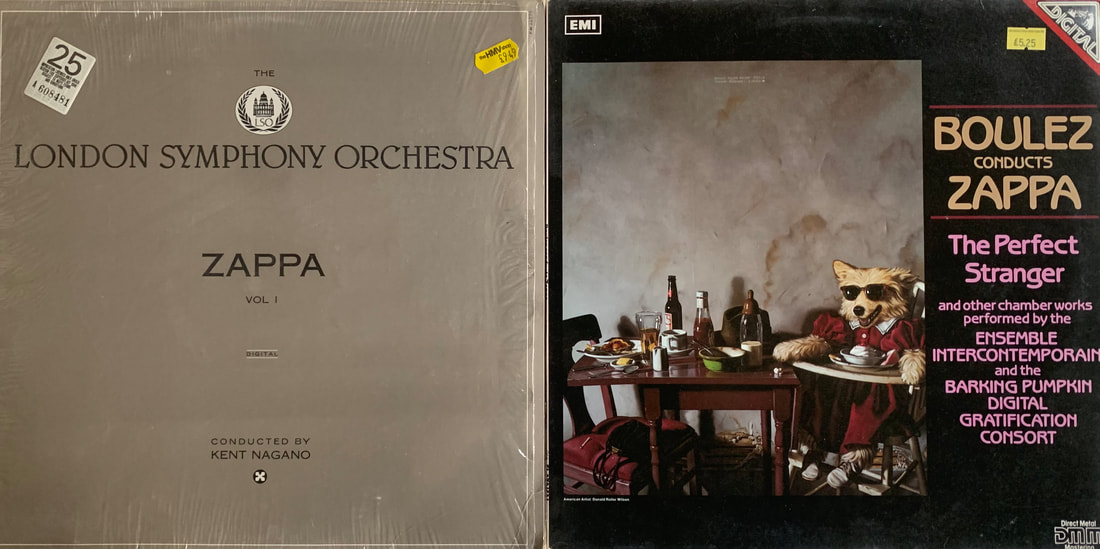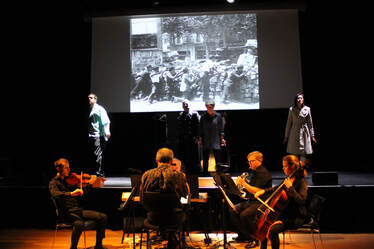|
Watching the Zappa biographical documentary yesterday brought to mind the occasion when, on 11th January 1983, I made my way over to the Barbican, London in the hope of getting a ticket to Frank Zappa's concert with the LSO. It was sold out, and there was already a long queue for returns by the time I got there. But I was on my own, I remember, and I thought I stood a chance of someone not turning up at the last minute. The audience made their way into the auditorium; people in the returns queue gave up and dispersed, but I persevered. Then the miracle happened: not only was I approached with the offer of a ticket - you had to be wary of touts - but it was a comp! 'It's fine', the guy said, 'I'm a roadie!' I got one of the best seats in the house sitting amongst members of Zappa's team. I'm not sure I understood the music more than anyone else did. (The roadies certainly didn't.) But I remember feeling how refreshing it was to get away from cerebral modernity: there was a whiff in the air of California, of breaking down barriers, of skating over conventional thinking. I've still got the LP, and the one with Boulez made in the following year.
Thereafter, Zappa used the Synclavier to realise his vision. For obvious reasons, it was cheaper than hiring an orchestra; although I remember seeing the Synclavier in a presentation (sales pitch?) in London sometime earlier, when it cost more than my first house. But it wasn't long before computers offered these facilities - and, of course, far more besides. I got my first Mac with Finale in 1989, though it wasn't for a few years that it became easy and speedy to use: at first, when writing an orchestral piece, you'd take a coffee break during a screen redraw - and it would still keep you waiting..
0 Comments
Leave a Reply. |
Edward LambertComposer and musician Categories
All
Archives
July 2024
|
|
Scores available by means of a Performance Restricted license from IMSLP
The Music Troupe
|
Contact Us |

 RSS Feed
RSS Feed
